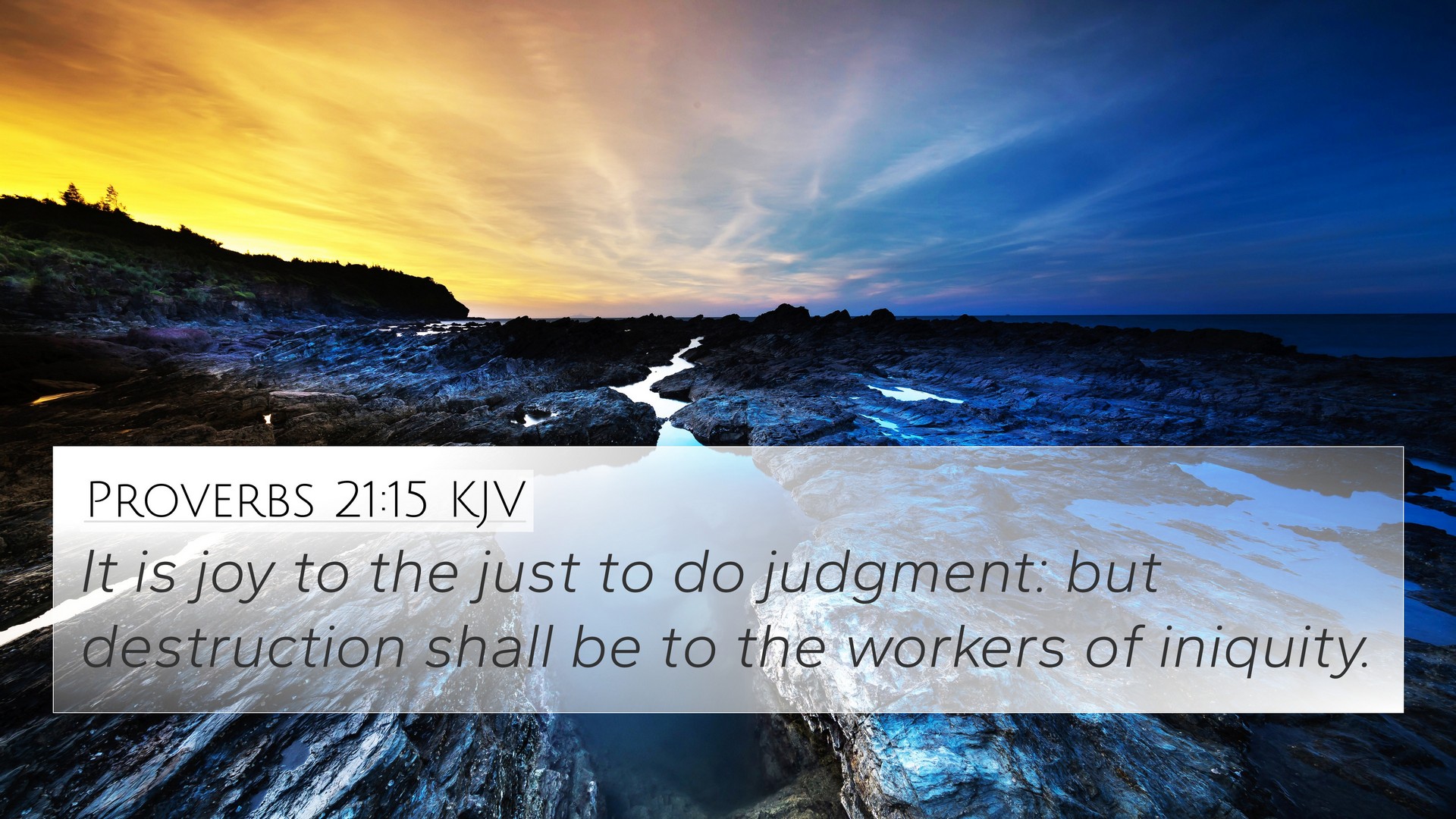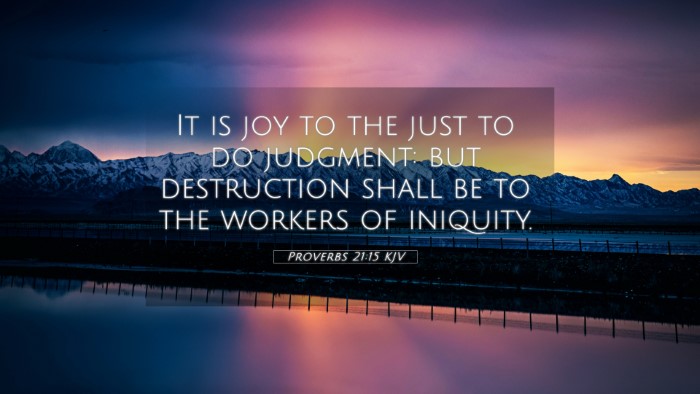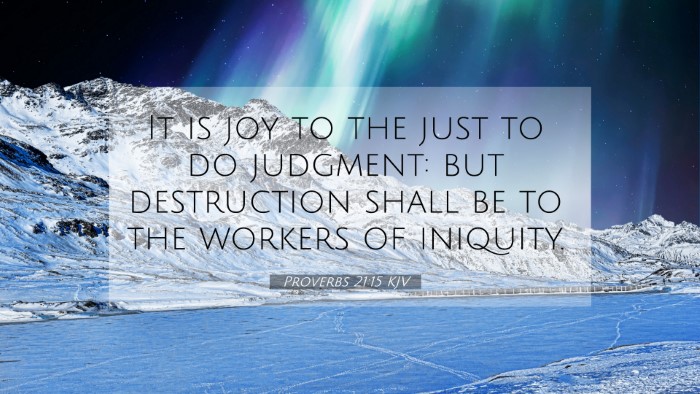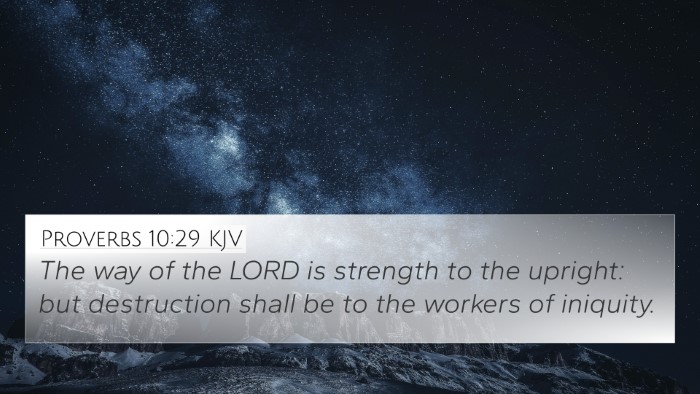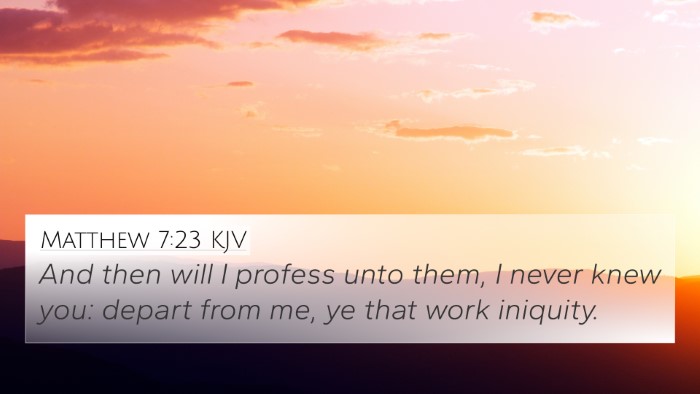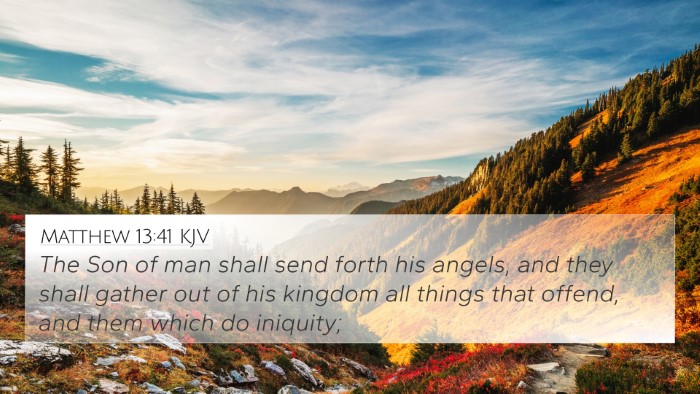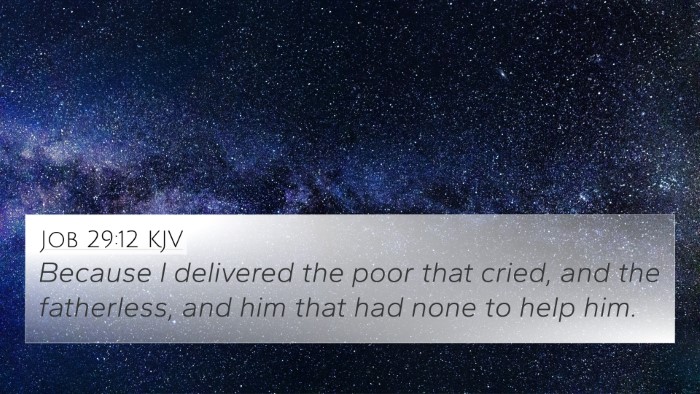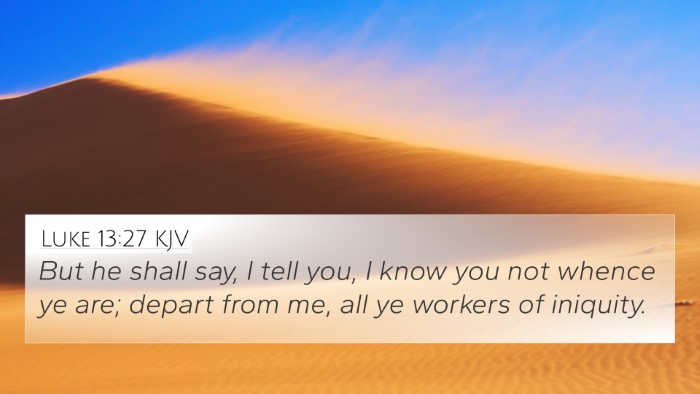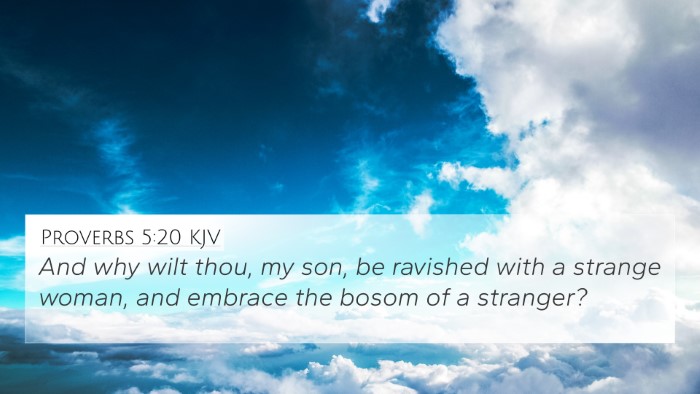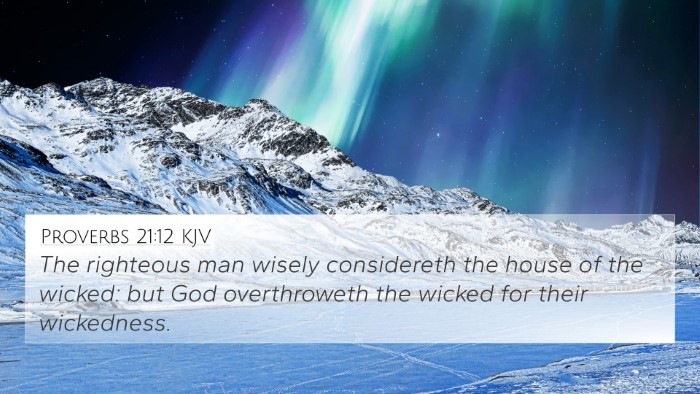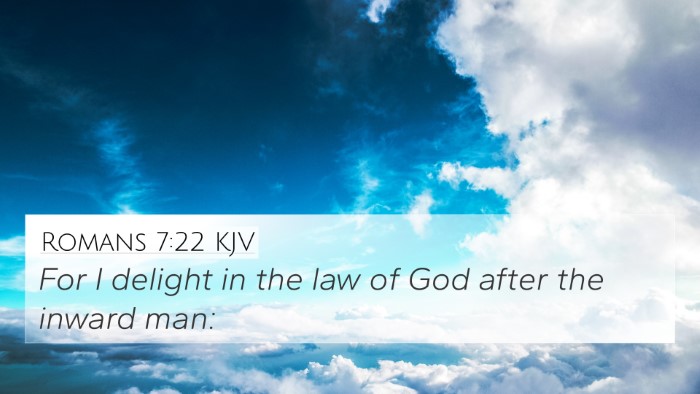Understanding Proverbs 21:15
Verse Reference: Proverbs 21:15 - "It is a joy to do what is just, but terror to those who do wrong."
Meaning and Interpretation
This verse reflects on the inherent joy that comes from justice and the stark contrast of fear that accompanies wrongdoing. The insights derived from various public domain commentaries provide a deeper understanding of this proverb.
Commentary Insights
-
Matthew Henry:
Henry emphasizes the moral implications of the actions of individuals. He notes that the steadfast pursuit of justice brings delight, while those engaged in corrupt or unjust deeds live in anxiety and fear of retribution. Justice, according to Henry, is associated with righteousness and harmony, while wrongdoing leads to discontent and disturbance.
-
Albert Barnes:
Barnes elaborates on the concept of joy in justice, pointing out that it not only uplifts the benefactor but also fosters a sense of community and security. In contrast, he stresses that evildoers are eternally anxious, aware that their actions lead to judgment and chaos, highlighting the internal conflict they face.
-
Adam Clarke:
Clarke adds depth by discussing the psychological impact of justice and wrongdoing. He argues that the assurance of justice creates a peaceful and fulfilling life, while the terror of consequences for those who act unjustly creates a state of turmoil and instability. The righteous are at peace, while the wicked remain restless.
Thematic Connections
Proverbs 21:15 is rich in themes related to righteousness, justice, and moral accountability. These themes can be linked to various Bible verses that echo similar sentiments:
- Proverbs 12:21: "No ill befalls the righteous, but the wicked are filled with trouble."
- Isaiah 48:22: "There is no peace, says the Lord, for the wicked."
- Romans 2:6-8: "He will repay each person according to what they have done: to those who by persistence in doing good seek glory, honor and immortality, he will give eternal life; but for those who are self-seeking and who reject the truth and follow evil, there will be wrath and anger."
- Psalm 37:28: "For the Lord loves the just and will not forsake his faithful ones. They will be protected forever, but the offspring of the wicked will be destroyed."
- Galatians 6:7: "Do not be deceived: God cannot be mocked. A man reaps what he sows."
- Matthew 5:10: "Blessed are those who are persecuted because of righteousness, for theirs is the kingdom of heaven."
- Hebrews 10:31: "It is a dreadful thing to fall into the hands of the living God."
Cross-Referencing Biblical Texts
Thematic connections may reveal profound insights on righteous living and moral consequences. Cross-referencing these verses highlights the overarching message of divine justice and accountability:
- Connections between Bible verses: Proverbs 21:15 connects deeply with both Old and New Testament themes regarding the rewards of justice and the repercussions of wrongdoing.
- Bible verses that relate to each other: The continuity in messages about justice and righteousness across scripture shows the Bible's interconnected narrative.
- Scriptural cross-referencing: Understanding Proverbs 21:15 alongside other verses enhances comprehension of God's demands for righteousness.
Practical Applications
As we contemplate Proverbs 21:15, the verse inspires us to pursue justice and ethical behavior, knowing that there is both joy in righteousness and distress in evil actions. The following applications can be drawn:
- Seek to embody justice in daily interactions, allowing the foundational principles of righteousness to guide us.
- Reflect on one’s own actions and intentions, examining if they align with just principles.
- Engage in community efforts that promote justice, thereby contributing positively to societal wellbeing.
- Utilize tools for Bible cross-referencing to identify and relate to other scripture that supports just living.
Conclusion
In wrestling with the meaning of Proverbs 21:15, we glean a vital life principle: that justice brings joy while wrongdoing instills terror. The interplay between these two outcomes serves as a reminder of the moral framework established in scripture. By leveraging resources such as a Bible concordance and tools for Bible cross-referencing, believers can deepen their understanding and application of these truths in life.
As you continue to study the Bible, consider the implications of Proverbs 21:15 and utilize the interconnectedness of scripture to bolster your understanding and faith journey.
